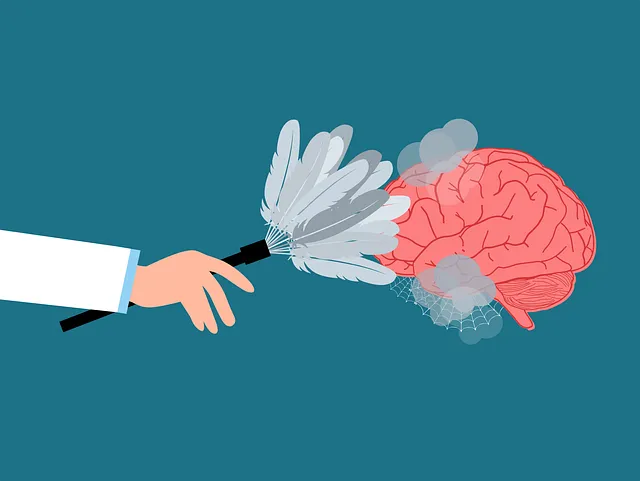Kaiser Permanente Mental Health Services takes a proactive approach to depression prevention with extensive resources, training, and personalized care. They recognize early signs and encourage support seeking before progression. Experts emphasize healthy lifestyle habits like exercise, balanced diets, quality sleep, meditation, and therapy. Their Mental Health Policy Analysis and Advocacy promotes community outreach programs and journaling exercises for building resilience and strengthening inner resistance against depression.
Depression is a prevalent yet treatable condition, and preventing it is a crucial aspect of overall well-being. This article explores comprehensive strategies to safeguard your mental health, focusing on early recognition through Kaiser Permanente’s exceptional mental health services. We delve into lifestyle adjustments, effective coping mechanisms, and building resilience to navigate life’s challenges. Discover the superior methods to prevent depression and foster a healthier, more balanced life, all backed by expert insights from Kaiser Permanente.
- Recognizing Early Signs and Symptoms: The Role of Kaiser Permanente Mental Health Services
- Lifestyle Adjustments and Coping Mechanisms for Depression Prevention
- Building Resilience: Superior Strategies to Navigate Life's Challenges
Recognizing Early Signs and Symptoms: The Role of Kaiser Permanente Mental Health Services

Recognizing the early signs and symptoms of depression is a crucial step in prevention, and Kaiser Permanente Mental Health Services plays a pivotal role in this process. With their comprehensive resources and superior healthcare provider training, they equip individuals with the knowledge to identify potential red flags. This includes not only recognizing emotional changes but also physical symptoms that often accompany depression. For instance, persistent fatigue, changes in appetite, and sleep disturbances can be early indicators, prompting individuals to seek support before the condition worsens.
Kaiser Permanente’s expertise lies in its Mental Health Policy Analysis and Advocacy, ensuring cultural competency training for healthcare providers. This allows them to offer personalized care that respects diverse backgrounds and needs. Additionally, their Social Skills Training programs empower individuals with coping strategies, fostering a sense of community and connection—a key aspect of mental well-being. By combining advanced policy insights and evidence-based interventions, Kaiser Permanente Mental Health Services aims to prevent depression, offering hope and effective solutions for those at risk.
Lifestyle Adjustments and Coping Mechanisms for Depression Prevention

Maintaining a healthy lifestyle plays a crucial role in depression prevention, as endorsed by Kaiser Permanente mental health experts. Adopting an active routine through regular exercise releases endorphins that boost mood and reduce stress. A balanced diet rich in vitamins and minerals from whole foods can significantly impact mental well-being. Additionally, prioritizing quality sleep allows the body to rest and recover, fostering emotional resilience.
Coping mechanisms are another vital tool in the prevention arsenal. Engaging in activities that promote relaxation, such as meditation or deep breathing exercises, can help manage stress. Developing coping skills through therapy or support groups provides individuals with healthy ways to process emotions. Building empathy within oneself and towards others can foster a sense of connection and belonging, strengthening inner strength and resilience against depression.
Building Resilience: Superior Strategies to Navigate Life's Challenges

Building resilience is a key strategy in preventing depression, especially when supported by resources like those offered by Kaiser Permanente mental health services. Resilience enables individuals to cope with life’s challenges and adapt positively, instead of succumbing to stress or adversity. The Mental Health Policy Analysis and Advocacy plays a vital role in promoting such initiatives. One effective approach is through Community Outreach Program Implementation, where educational sessions, support groups, and awareness campaigns are organized to help individuals develop coping mechanisms and build a support network.
Additionally, Mental Wellness Journaling Exercise Guidance can be a powerful tool for self-reflection and stress management. Regular journaling allows individuals to process their emotions, track progress, and identify patterns in their mental health. This practice fosters self-awareness, enabling people to proactively manage their well-being before potential depressive episodes. By combining community initiatives and individual exercises, we can create a robust framework for depression prevention, ensuring a healthier and more resilient population.
In conclusion, depression prevention is a multifaceted approach that combines early recognition, lifestyle adjustments, and building resilience. By utilizing resources like Kaiser Permanente Mental Health Services for identifying symptoms and seeking support, adopting coping mechanisms to manage stress, and fostering superior strategies for navigating life’s challenges, individuals can take proactive steps towards maintaining mental well-being. These comprehensive strategies empower folks to tackle depression head-on, ensuring a brighter and more resilient future.






